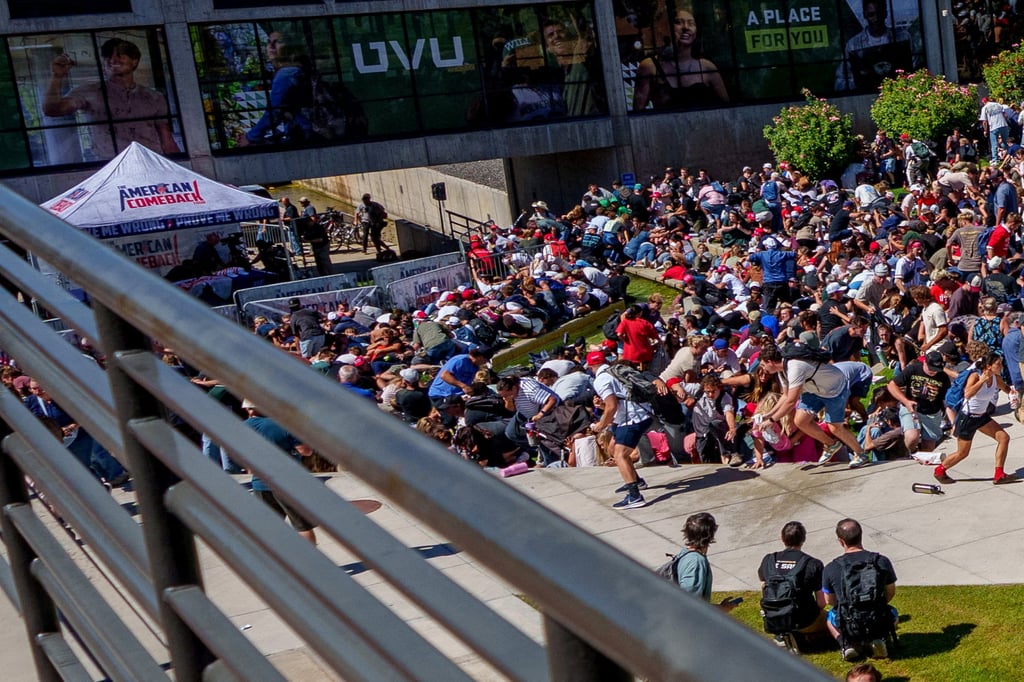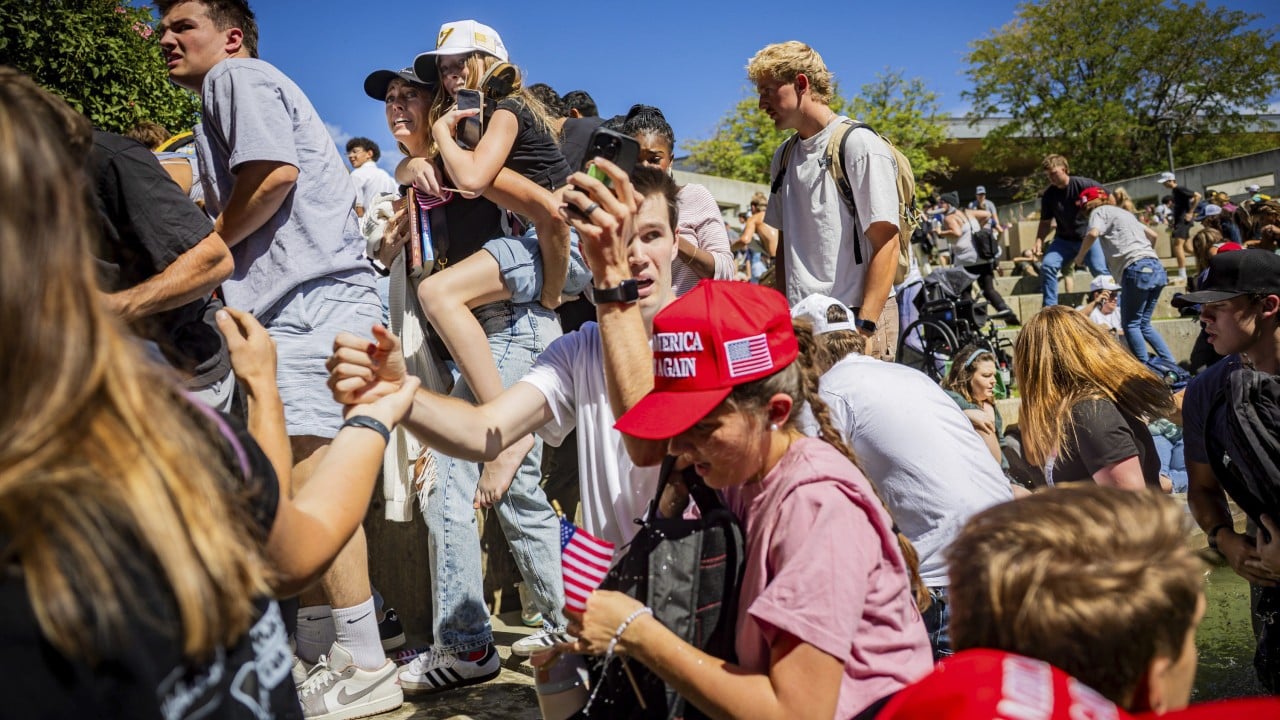The assassination of right-wing influencer Charlie Kirk marks a watershed moment in a surge of US political violence, one that some experts fear will inflame an already-fractured country and inspire more unrest.
Advertisement
“This event is horrifying, alarming, but not necessarily surprising,” said Mike Jensen, a researcher at the University of Maryland, which has tracked such violence in a terrorism database since 1970.
In the first six months of the year, the US experienced about 150 politically-motivated attacks – nearly twice as many as over the same period last year, said Jensen. “I think we are in a very, very dangerous spot right now that could quite easily escalate into more widespread civil unrest if we don’t get a hold of it,” Jensen said. “This could absolutely serve as a kind of flashpoint that inspires more of it.”
Experts in domestic terrorism cite a convergence of factors for increased violence in the US: economic insecurity, anxiety over shifting racial and ethnic demographics, and the increasingly inflammatory tone of political discourse. Traditional ideological divides – once centred on policy disagreements – have morphed into a deeper, more personal animosity. That anger is amplified by a mix of social media, conspiracy theories and personal grievances.

Reuters identified last year at least 300 cases of political violence across the US between the January 6, 2021, attack on the Capitol and the 2024 presidential election, marking the most significant and sustained surge in such violence since the 1970s.
Advertisement

